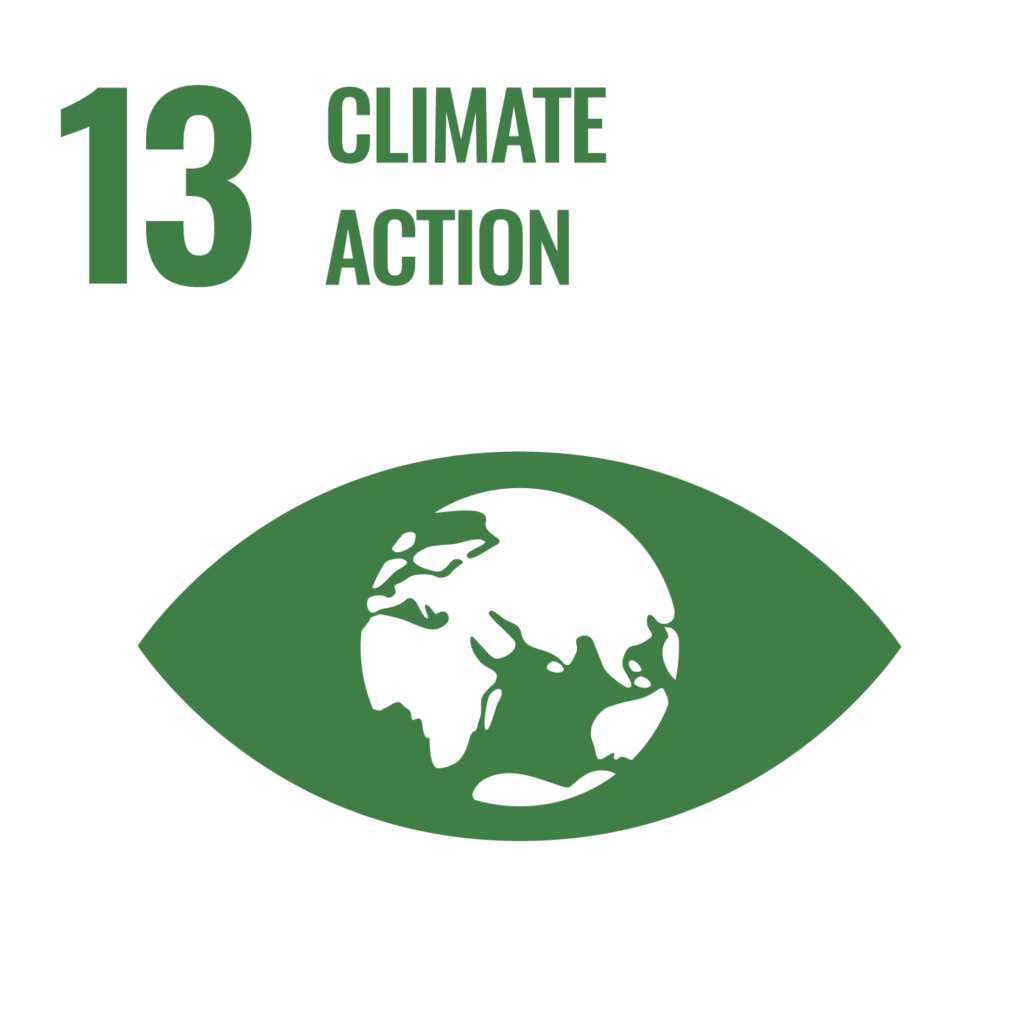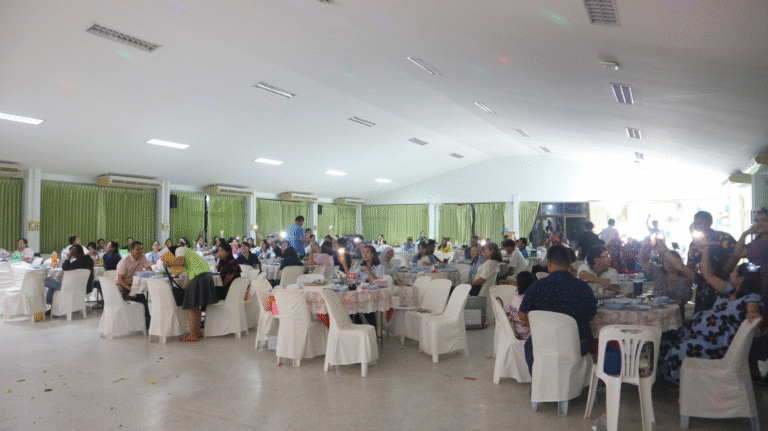Reporters:
Asst. Prof. Dr. Nattapon Kaewthong
Asst. Prof. Chayanat Buathongkua
Asst. Prof. Tanakorn Inthasuth
Ms. Sayamon Buddhamongkol
Ms. Duanrung Chooyruang
Evidence Date: during 27 Apr 2023
Related Indicators: 13.2.1: Low-carbon energy tracking
Details:
The system is an innovative automated solar panel cleaning device developed by engineering students at Trang University. With the rise in self-installed solar panels for energy savings, this invention addresses the issue of dust accumulation, which reduces efficiency. The system automates cleaning, reducing labor costs and minimizing safety risks associated with manual cleaning, particularly on high rooftops for maintaining cleaner panels, the system enhances energy output, contributing to more efficient low-carbon energy use.
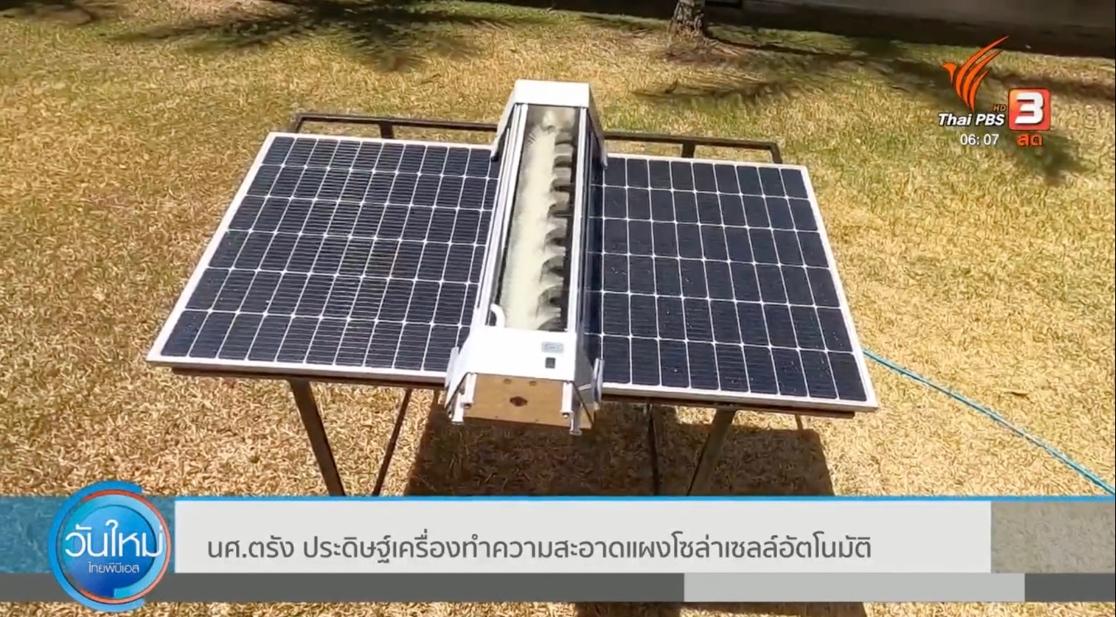
The cleaning mechanism in operation is shown as it brushes across the solar panels. This self-operating device ensures regular cleaning, optimizing energy generation without human intervention. The brush system effectively removes dust and debris, extending the lifespan of the panels and reducing maintenance costs. This helps maintain efficient solar power production, supporting climate action goals by promoting the use of renewable energy.
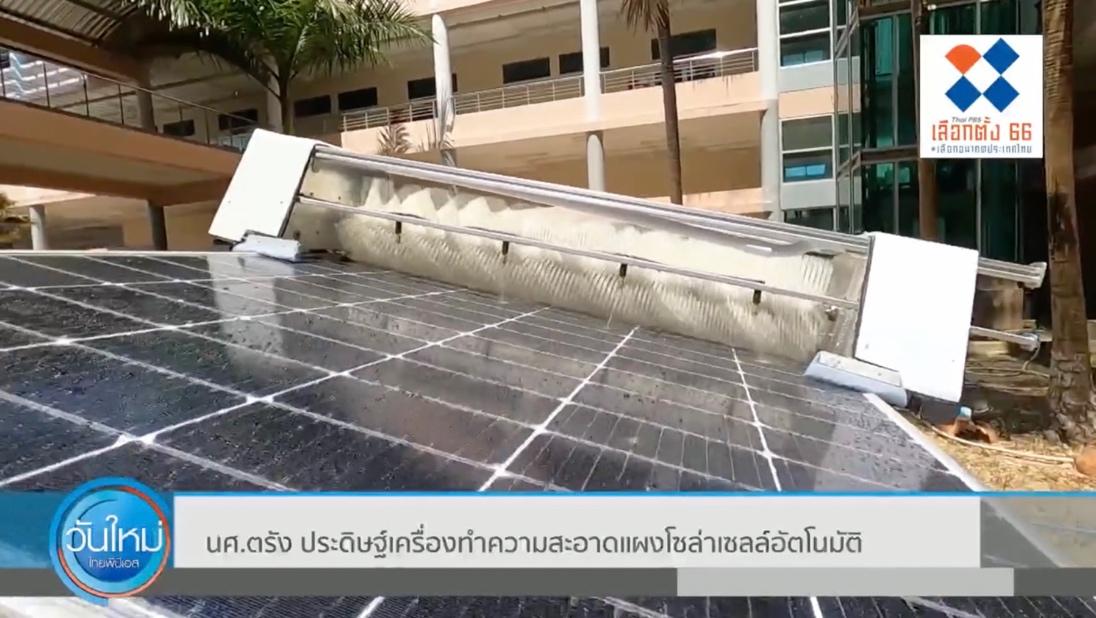
Students from RUTS Trang Campus’s electrical engineering department explain their invention, demonstrating the control system, which operates via smartphone. The project highlights the integration of technology and education in advancing sustainable energy solutions. Their efforts reflect the importance of youth innovation in creating practical tools to support climate mitigation efforts. By reducing the reliance on manual labor and hazardous work conditions, the system exemplifies local educational initiatives that contribute to global climate action.
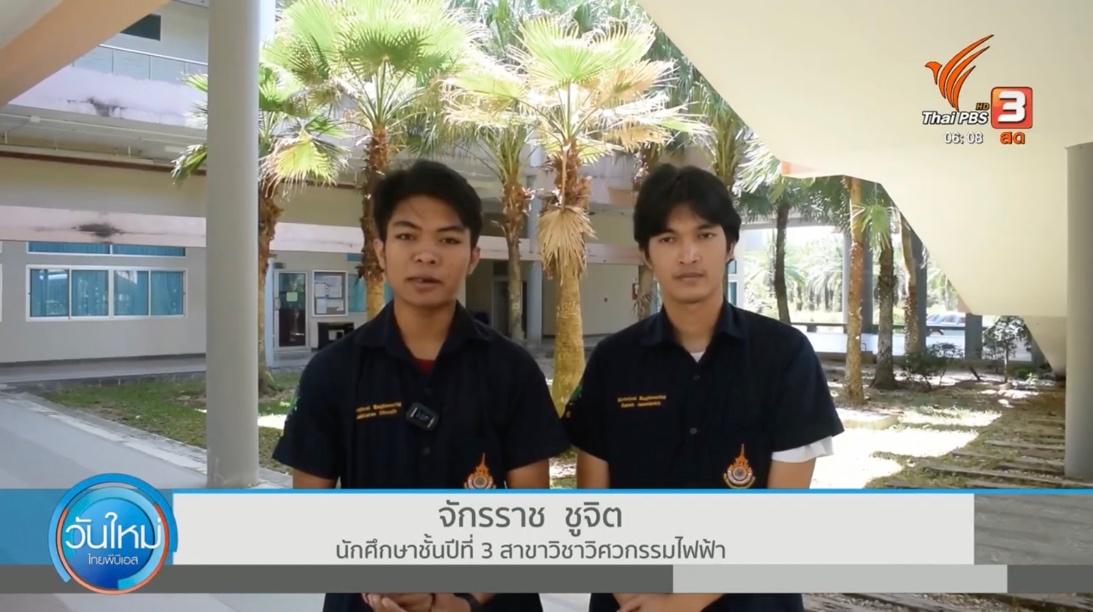
This demonstration shows controlling the automated cleaning system remotely through a smartphone. The smart control allows for easy operation, demonstrating the practical, user-friendly nature of the device. Such innovations make renewable energy systems more attractive and manageable, thus encouraging more people to adopt solar power and contribute to reducing carbon emissions through more efficient energy use.
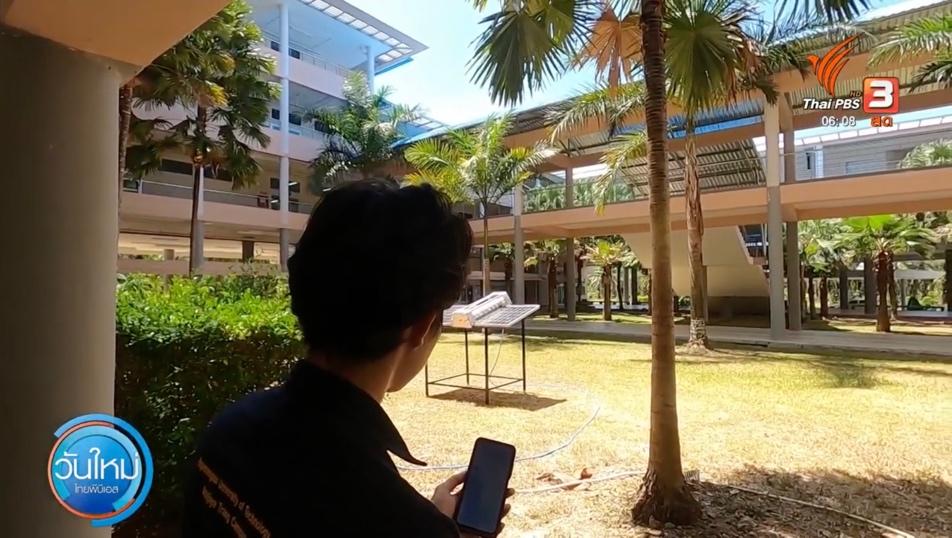
The cleaning system is enhanced by a manual water spray during operation. Although primarily automatic, the system can be supplemented with manual assistance in heavily soiled conditions. This integration of automation and manual input demonstrates a flexible approach to maintaining solar panels, ensuring consistent efficiency and supporting the long-term sustainability of solar energy systems. By ensuring optimal performance of solar panels, this system supports the broader transition to carbon-neutral energy production.
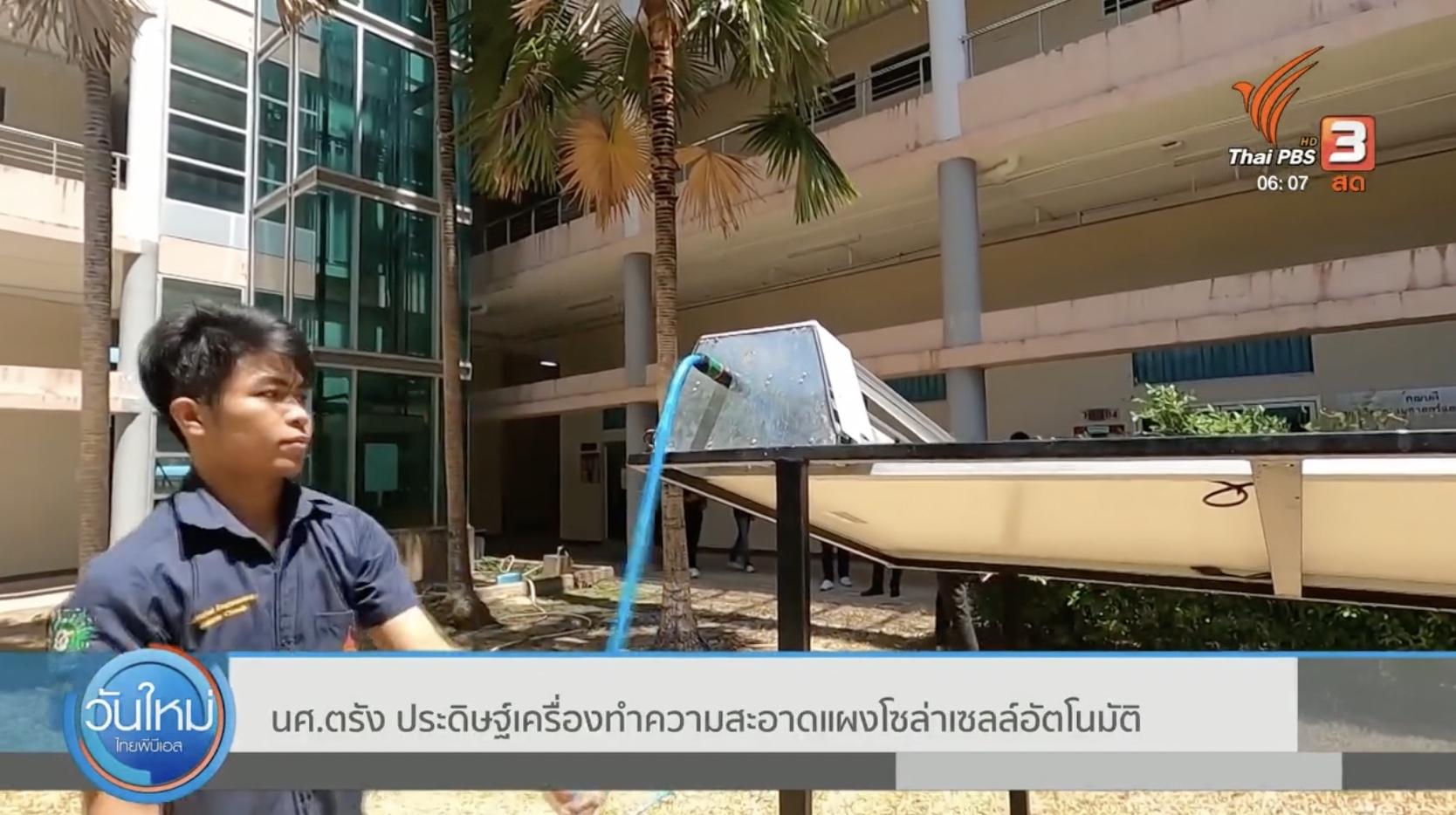
Related Links:

